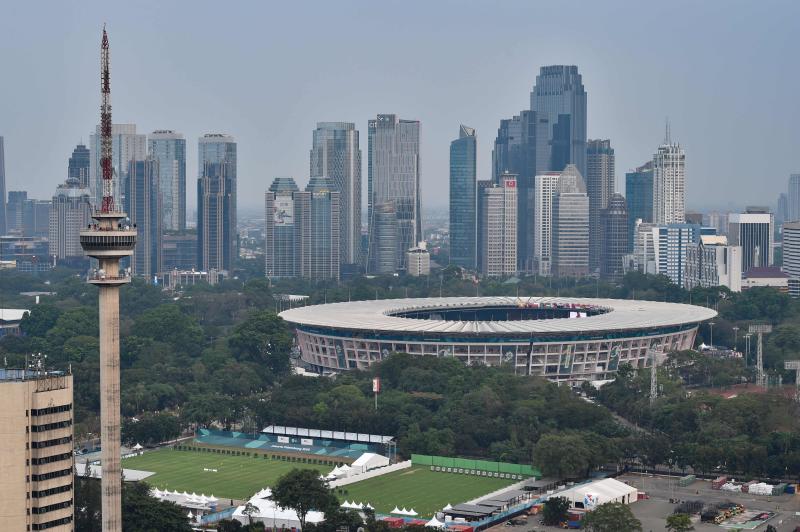Survey in Indonesia indicates corruption and intolerance are threats to democracy in the country
Sign up now: Get insights on Asia's fast-moving developments

The survey was carried out in August and involved 1,520 respondents who were voters. Indonesia slipped by six places to 96th out of 180 countries surveyed in the Corruption Perception Index 2017.
PHOTO: AFP
Follow topic:
JAKARTA: Indonesians are satisfied with democracy, but corruption and intolerance continue to weigh on the system, according to the latest survey by pollster Indonesia Survey Institute (LSI).
The survey, which was carried out in August and involved 1,520 respondents who were voters, also revealed that intolerance related to politics rose in the past three years, marked by Muslims objecting to non-Muslims becoming leaders in government. Non-Muslims, on the other hand, were more tolerant towards the appointment of Muslim leaders.
Intolerance related to religion and culture has also continued to fester with Muslims continuing to frown upon non-Muslims building religious sites or carrying out their rituals near them. Non-Muslims, on the other hand, were more accommodating towards Muslims.
But non-Muslims too tend to be intolerant in areas where they make up the majority, said LSI senior researcher Burhanuddin Muhtadi.
"Why does our democracy stagnate? First of all, while the support of our voters to democracy remains high, they still have a receptive attitude toward corruption," said Dr Burhanuddin.
"Put it simply, (they say) yes to democracy and yes to corruption - that's why our democracy cannot progress," he added.
Indonesia slipped by six places to 96th out of 180 countries surveyed in the Corruption Perception Index 2017 released by the Berlin-based Transparency International in February. The group attributed the drop in rankings to the absence of notable progress in the country's fight against corruption last year. This was despite the high-profile case of the former speaker of parliament, Setya Novanto, who was sentenced to 15 years for graft in April.
Launching the survey results on Monday (Sept 24), Dr Burhanuddin said that Indonesians tended to accept corruption as natural because of their experience in dealing with government officials when, for instance, they had to apply for identity cards or birth certificates.
Therefore, Dr Burhanuddin said, one way to deal with the issue was to tackle the problem in the public service.
"The easiest way is to begin with our officials. If they don't ask for money or gratifications from the people they serve, it will be very likely that the people will consider such practices as unnatural," he said.
Last year, corruption, mostly caused by bribery, resulted in Rp 1.45 quadrillion (S$132.94 billion) in losses to the state, data from the non-profit Indonesia Corruption Watch (ICW) shows. Only a tiny fraction of this amount - 4.91 per cent - were recovered and returned to state coffers after court cases were decided.
ICW Coordinator Adnan Topan Husodo noted that nearly 2,500 civil servants were implicated in corruption cases which obtained final and binding court rulings. But these officials have remained in their positions, and some were even promoted.
"This illustrates that the current system does not offer incentives (for public officials) to act clean. We need to think how to break it," Mr Adnan said.

